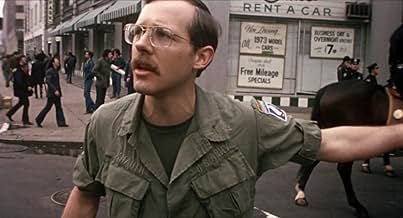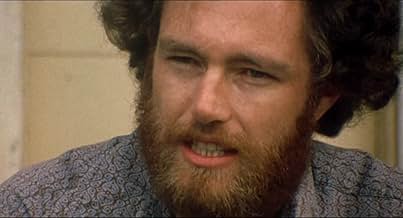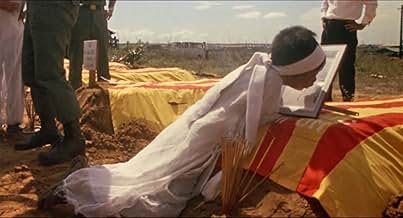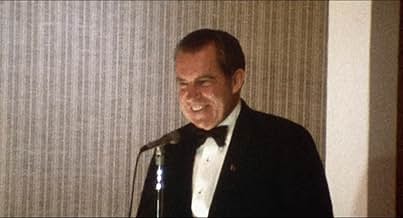VALUTAZIONE IMDb
8,2/10
6448
LA TUA VALUTAZIONE
Aggiungi una trama nella tua linguaA startling and courageous landmark documentary that unflinchingly confronted the United States' involvement in Vietnam at the height of the controversy that surrounded it.A startling and courageous landmark documentary that unflinchingly confronted the United States' involvement in Vietnam at the height of the controversy that surrounded it.A startling and courageous landmark documentary that unflinchingly confronted the United States' involvement in Vietnam at the height of the controversy that surrounded it.
- Vincitore di 1 Oscar
- 5 vittorie e 1 candidatura in totale
Ngo Dinh Diem
- Self - President of South Vietnam
- (filmato d'archivio)
John Foster Dulles
- Self - Secretary of State, 1953-1959
- (filmato d'archivio)
Kay Dvorshock
- Self
- (filmato d'archivio)
Dwight D. Eisenhower
- Self - President of the United States
- (filmato d'archivio)
Lyndon B. Johnson
- Self
- (filmato d'archivio)
- (as Lyndon Johnson)
John F. Kennedy
- Self - President of the United States
- (filmato d'archivio)
Robert F. Kennedy
- Self - U.S. Senator
- (filmato d'archivio)
William Marshall
- Self
- (as Sgt. WIlliam Marshall - Detroit)
Eugene McCarthy
- Self - U.S. Senator
- (filmato d'archivio)
Ho Chí Minh
- Self
- (filmato d'archivio)
Recensioni in evidenza
Hearts and Minds holds much relevance for the post- Sept-11 world.
Although this film concerns itself with the Vietnam War, it is really about war in general. It explores the reasons America behaves the way it does towards other countries and towards itself, without having to come right out and tell you. It is the old writers credo, "Show, don't tell." The film bears multiple viewings, and you discover something new every time. Anybody who has loved ones in the military, and anybody who is "involved" in politics will be interested in watching this.
Although this film concerns itself with the Vietnam War, it is really about war in general. It explores the reasons America behaves the way it does towards other countries and towards itself, without having to come right out and tell you. It is the old writers credo, "Show, don't tell." The film bears multiple viewings, and you discover something new every time. Anybody who has loved ones in the military, and anybody who is "involved" in politics will be interested in watching this.
I have never been so shocked and outraged before today when I watched "Hearts and minds". We are shown stunning images of the people of Vietnam suffering from a child crying for his father, from a wife tying to get into the grave with her husband, to two sisters pained by the death of their elder sister. We were shown images of brutality from the enemies of these poor people who had absolutely nothing to show for. Their houses were set on fire, we are even shown images of the Americans kicking a man in his privates and then being smashed in the head by their weapon. It was totally shocking! Americans sleeping with prostitutes and the image that will live with me forever, was that of an American soldier shooting a young man in the head with blood gushing out and yet the camera is still rolling. Don't these people feel any shame? You get American soldiers saying they enjoyed killing those people but after watching images years later of the pain and suffering, they felt regret. It's changed my perspective forever. Something that should not have happened in the first place.
Davis does a neat job of laying out the absurdity in the US's involvement in Vietnam. He does it mainly through the use of two techniques.
(1) Successive contrast, as it's called in the psychology of perception. If you stare at a black square for a while, then switch your gaze to a gray square, it looks white, not gray. In this movie Davis juxtaposes moments from interviews and newsreel footage to demonstrate how far removed high-level speeches can be from events as they take place on the ground. General Westmoreland, who, like General Douglas MacArthur, was another one of those giants in the field of Oriental psychology, explains to us that Asians don't place the same kind of value on human life as Westerners do. (He might have been thinking of kamikaze attacks from WWII.) Cut to a Vietnamese funeral full of wailing mourners. A coach gives a pep talk, screaming and weeping, to a high school football team in Niles, Ohio. "Don't let them BEAT US!" he cries. Cut to a scene of combat.
(2) Selective interviewing and editing. The Vietnamese seem to speak nothing but common sense and they are seen doing nothing but defending themselves -- and very little of that. The Americans that we see and hear are mostly divided into two types: phony idiots and wised-up ex-patriot veterans. Fred Coker is an exception. He's a naval aviator who was evidently a POW. He's clean-cut, intelligent, and articulate, and he's given a lot of screen time. This is all for the good because he's about the only pro-war character we see. He's been there and he still believes. He serves as a useful bridge between the pro-war idiots and the embittered anti-war Americans.
And of course the statements we hear on screen are selected for their dramatic value. One former pilot describes how he and his comrades approached their bombing missions -- for some of them it was just a job, part of the daily grind, but for some others it got to be kind of fun. And for him? "I enjoyed it." The amazing thing in propagandistic documentaries like this is not that the sound bites were selected. Of course they were, otherwise you'd have a dull movie of a thousand people from the middle of the road. "Dog bites man" is not news. "Man bites dog" IS news! No, the truly astonishing thing is that some of the interviewees actually SAID these things in the first place. Selective or not, here is the evidence on film. And how is it possible to "take out of context" General Westmoreland's disquisition on the Oriental attitude towards life? Or a vet smirking and saying he enjoyed killing Gooks?
I'm reminded of a scene in Michael Moore's first documentary, "Roger and Me." Moore is talking to a handful of rich wives who are on some Flint, Michigan, golf course, chipping balls. His camera rolls on and on while the ladies chat about the closing of the plants and the movement of jobs to cheaper labor markets. They love the area around Flint -- great golf courses, good riding country. And the newly unemployed? Well, says one of the wives, before a swing, now they'll have to get up and find a job. Poor people are always lazy anyway.
It's a shocking statement, and we hear similarly shocking statements throughout this movie. It all leaves a viewer with a sense of awe that anyone could be so unashamedly deluded.
I don't see any reason to point out the similarities between what happened in Viet Nam and what's going on as I write this. I wish our current leaders, practically none of whom served in the military let alone Viet Nam, could have seen this because it might have served as a useful reminder that war isn't REALLY very much like a high school football game.
G. K. Chesterton once wrote, "My country, right or wrong, is a thing no true patriot would think of saying. It is like saying, 'My mother, drunk or sober'".
(1) Successive contrast, as it's called in the psychology of perception. If you stare at a black square for a while, then switch your gaze to a gray square, it looks white, not gray. In this movie Davis juxtaposes moments from interviews and newsreel footage to demonstrate how far removed high-level speeches can be from events as they take place on the ground. General Westmoreland, who, like General Douglas MacArthur, was another one of those giants in the field of Oriental psychology, explains to us that Asians don't place the same kind of value on human life as Westerners do. (He might have been thinking of kamikaze attacks from WWII.) Cut to a Vietnamese funeral full of wailing mourners. A coach gives a pep talk, screaming and weeping, to a high school football team in Niles, Ohio. "Don't let them BEAT US!" he cries. Cut to a scene of combat.
(2) Selective interviewing and editing. The Vietnamese seem to speak nothing but common sense and they are seen doing nothing but defending themselves -- and very little of that. The Americans that we see and hear are mostly divided into two types: phony idiots and wised-up ex-patriot veterans. Fred Coker is an exception. He's a naval aviator who was evidently a POW. He's clean-cut, intelligent, and articulate, and he's given a lot of screen time. This is all for the good because he's about the only pro-war character we see. He's been there and he still believes. He serves as a useful bridge between the pro-war idiots and the embittered anti-war Americans.
And of course the statements we hear on screen are selected for their dramatic value. One former pilot describes how he and his comrades approached their bombing missions -- for some of them it was just a job, part of the daily grind, but for some others it got to be kind of fun. And for him? "I enjoyed it." The amazing thing in propagandistic documentaries like this is not that the sound bites were selected. Of course they were, otherwise you'd have a dull movie of a thousand people from the middle of the road. "Dog bites man" is not news. "Man bites dog" IS news! No, the truly astonishing thing is that some of the interviewees actually SAID these things in the first place. Selective or not, here is the evidence on film. And how is it possible to "take out of context" General Westmoreland's disquisition on the Oriental attitude towards life? Or a vet smirking and saying he enjoyed killing Gooks?
I'm reminded of a scene in Michael Moore's first documentary, "Roger and Me." Moore is talking to a handful of rich wives who are on some Flint, Michigan, golf course, chipping balls. His camera rolls on and on while the ladies chat about the closing of the plants and the movement of jobs to cheaper labor markets. They love the area around Flint -- great golf courses, good riding country. And the newly unemployed? Well, says one of the wives, before a swing, now they'll have to get up and find a job. Poor people are always lazy anyway.
It's a shocking statement, and we hear similarly shocking statements throughout this movie. It all leaves a viewer with a sense of awe that anyone could be so unashamedly deluded.
I don't see any reason to point out the similarities between what happened in Viet Nam and what's going on as I write this. I wish our current leaders, practically none of whom served in the military let alone Viet Nam, could have seen this because it might have served as a useful reminder that war isn't REALLY very much like a high school football game.
G. K. Chesterton once wrote, "My country, right or wrong, is a thing no true patriot would think of saying. It is like saying, 'My mother, drunk or sober'".
Hard hitting documentary directed by Peter Davis in how the US got itself involved in the War in Vietnam that ended up tearing the country apart. Made in 1974 before the Vetcong guerrillas and North Vietnamese Army overran the country the film shows the pitfalls that the US chose to overlook in getting itself stuck in the mud swamps and jungles that was the Vietnam War.
There's really no one US President to blame for getting the country into that bloody mess of a war in that we see it was a team effort from Pres. Truman to Pres. Nixon and every other US Chief Executive, Eisenhower Kennedy & Johnson, in between. The French who were involved in the first Vietnam or Indochina War was soundly defeated by Ho Chi Minh's, known as "The Enlighten One", Viet Minh forces in the bloody and drawn out battle of Dien Bien Phu in May 1954. That jungle battle ended the conflict that resulted in the loss, French and Vietnames military and civilians, of over 700,000 lives. During the almost 8 years of of fighting in Indochina War the US was far from neutral in supporting the French with almost 80% of the arms and money for the French to keep the war going.
With the free and UN sponsored elections to unify both north and South Vietnam set to be held in 1956 and Ho Chi Minh being a sure shot of winning them the US under Pres. Eisenhower set up the puppet Diem to be South Vietnam's fist unelected president. This set the stage for the second Vietnam War that was to involved as much as 550,000 US troops and lasting 16 years from 1959 to 1975, the longest war in US history, ending up costing almost 60,000 American lives; Not to mention the some 3 million Vietnamese,from both North & South Vietnam, who perished in it.
Among the many persons who were personally involved in the Vietnam war the one who made the biggest impact on me in the movie was former Secretary of Defense Clark Clifford. Clifford in an interview admitted that those Generals and politicians conducting the war had no idea in not only how to win it but who they were fighting against. Everything that they did failed miserably and they ended up stuck in an unwindable war because in their mind by ending it, or withdrawing from the country, would lead to a "Domino Effect" where all of South-East Asia would end up falling into Communists hands. Which to them was worth the enormous loss of life, American & Vietnamese, that this bottomless quagmire of a war was was costing! As it turned out the "Domino Effect" turned out to be pure fiction with no other country in that part of the world turning Communist and Vietnam now a united country being one of the US', next to Communist China, biggest trading partners in Asia!
What the film brings out best is how most of the American public finally realized that they've been had in going along with the bankrupt policies of their leaders who conned them, like in the faked and infamous Tonkin Gulf incident, into supporting the war. Taking to the street in massive anti-war demonstrations with hundreds of returning Vietnam war vet participating in them was what really brought the war to an end. But it took almost 6 years from 1966 to 1973 for it to happen! And it was during that time the majority of the almost 60,000 American and 3 million Vietnamese lives lost in the war were snuffed out.
In the end the Vietnam War turned out to be a war that many from the Truman Eishenhower Kenndey Johnson & Nixon Administrations who whole hearted supported it at first would now, after all the facts are in about it, like to forget!
There's really no one US President to blame for getting the country into that bloody mess of a war in that we see it was a team effort from Pres. Truman to Pres. Nixon and every other US Chief Executive, Eisenhower Kennedy & Johnson, in between. The French who were involved in the first Vietnam or Indochina War was soundly defeated by Ho Chi Minh's, known as "The Enlighten One", Viet Minh forces in the bloody and drawn out battle of Dien Bien Phu in May 1954. That jungle battle ended the conflict that resulted in the loss, French and Vietnames military and civilians, of over 700,000 lives. During the almost 8 years of of fighting in Indochina War the US was far from neutral in supporting the French with almost 80% of the arms and money for the French to keep the war going.
With the free and UN sponsored elections to unify both north and South Vietnam set to be held in 1956 and Ho Chi Minh being a sure shot of winning them the US under Pres. Eisenhower set up the puppet Diem to be South Vietnam's fist unelected president. This set the stage for the second Vietnam War that was to involved as much as 550,000 US troops and lasting 16 years from 1959 to 1975, the longest war in US history, ending up costing almost 60,000 American lives; Not to mention the some 3 million Vietnamese,from both North & South Vietnam, who perished in it.
Among the many persons who were personally involved in the Vietnam war the one who made the biggest impact on me in the movie was former Secretary of Defense Clark Clifford. Clifford in an interview admitted that those Generals and politicians conducting the war had no idea in not only how to win it but who they were fighting against. Everything that they did failed miserably and they ended up stuck in an unwindable war because in their mind by ending it, or withdrawing from the country, would lead to a "Domino Effect" where all of South-East Asia would end up falling into Communists hands. Which to them was worth the enormous loss of life, American & Vietnamese, that this bottomless quagmire of a war was was costing! As it turned out the "Domino Effect" turned out to be pure fiction with no other country in that part of the world turning Communist and Vietnam now a united country being one of the US', next to Communist China, biggest trading partners in Asia!
What the film brings out best is how most of the American public finally realized that they've been had in going along with the bankrupt policies of their leaders who conned them, like in the faked and infamous Tonkin Gulf incident, into supporting the war. Taking to the street in massive anti-war demonstrations with hundreds of returning Vietnam war vet participating in them was what really brought the war to an end. But it took almost 6 years from 1966 to 1973 for it to happen! And it was during that time the majority of the almost 60,000 American and 3 million Vietnamese lives lost in the war were snuffed out.
In the end the Vietnam War turned out to be a war that many from the Truman Eishenhower Kenndey Johnson & Nixon Administrations who whole hearted supported it at first would now, after all the facts are in about it, like to forget!
I'll admit up front that Peter Davis' documentary makes no effort to show the carnage and torture sponsored and perpetuated by the Viet Cong -- and the one substantial time it explores the way South Vietnamese civilians were imprisoned and tortured by their own government (in huge numbers, by the way), the film isn't very clear about who made these arrests. It concentrates almost solely on the inhumanity and pointlessness of our presence there in a pointless war which even our leaders were unprepared to comprehend.
It's not "balanced" within itself, but given the day-to-day barrage of standard media coverage of the Vietnam war during the time the documentary was made, I believe the making of this film represented an attempt to "balance" the average American's knowledge of what was really going on and how misrepresented the war was by our government and even by the major media most of the time.
All that being said, it's a vivid, important part of the mosaic of American war records. The images are enormously powerful, and where occasionally Mr. Davis' juxtapositions seem overtly manipulative, he still is to be praised emphatically for collecting and assembling this material in such a courageous and uncompromising way. It is essential viewing because of the power of its collected imagery and the lessons about America that we still need to learn. 30 years after the Vietnam war ended, there are still too many essential ways in which that conflict is not understood....and the degree to which we cannot seem, as a nation, to learn from the lessons of Vietnam is only too evident in the manner and attitude with which our leaders have handled and carried on the American military action in Iraq.
Having read a lot of the writings of Vietnam vets over the years about this war, I'm tempted to say that this documentary doesn't go far enough to show the core of absurdity and tragedy at the heart of this war and the way it put young Americans into a hellish situation for no reason and then left them there to be a part of a morally ambivalent, politically and humanly misguided situation, forever disillusioning and haunting an entire generation. But if this film can help younger people to understand just the tip of the iceberg of the enormous tragedy of America's involvement in a pointless 10-year war, then it continues to be worthwhile.
The film itself does not provide nearly enough "backstory" for a student or younger person who did not live through the era. Peter Davis presupposes that the viewing audience knows a lot of things which we knew at the time but which is no longer general knowledge for many viewers. But as a part of an overall attempt (using various sources) to understand that war and its colossal ramifications to our country's self-image, and as a reminder of how easy it is to slip into a tragic imperialism masquerading as some other kind of naive political idealism, it's an essential and vividly effective document of the times for which we owe Mr. Davis a huge debt of gratitude. There is much to be learned from films like this -- including things which our leaders today don't seem to have learned themselves, despite having lived through the Vietnam era.
It's also important to remember that until the Vietnam war, and later Watergate (reminders of which resonate in the presence in this film of "Pentagon Paper"- leaker Daniel Ellsberg), Americans generally believed what their government told them, and didn't think Presidents lied. It may be difficult now to remember there ever was a time when we trusted our government not to be intentionally misleading us, and if Mr. Davis makes a conspicuous effort to emphasize the duplicity of Johnson and Nixon in this documentary, it's probably because it was such a new and unbelievable concept to the overwhelming percentages of Americans before the Vietnam era took place.
It's not "balanced" within itself, but given the day-to-day barrage of standard media coverage of the Vietnam war during the time the documentary was made, I believe the making of this film represented an attempt to "balance" the average American's knowledge of what was really going on and how misrepresented the war was by our government and even by the major media most of the time.
All that being said, it's a vivid, important part of the mosaic of American war records. The images are enormously powerful, and where occasionally Mr. Davis' juxtapositions seem overtly manipulative, he still is to be praised emphatically for collecting and assembling this material in such a courageous and uncompromising way. It is essential viewing because of the power of its collected imagery and the lessons about America that we still need to learn. 30 years after the Vietnam war ended, there are still too many essential ways in which that conflict is not understood....and the degree to which we cannot seem, as a nation, to learn from the lessons of Vietnam is only too evident in the manner and attitude with which our leaders have handled and carried on the American military action in Iraq.
Having read a lot of the writings of Vietnam vets over the years about this war, I'm tempted to say that this documentary doesn't go far enough to show the core of absurdity and tragedy at the heart of this war and the way it put young Americans into a hellish situation for no reason and then left them there to be a part of a morally ambivalent, politically and humanly misguided situation, forever disillusioning and haunting an entire generation. But if this film can help younger people to understand just the tip of the iceberg of the enormous tragedy of America's involvement in a pointless 10-year war, then it continues to be worthwhile.
The film itself does not provide nearly enough "backstory" for a student or younger person who did not live through the era. Peter Davis presupposes that the viewing audience knows a lot of things which we knew at the time but which is no longer general knowledge for many viewers. But as a part of an overall attempt (using various sources) to understand that war and its colossal ramifications to our country's self-image, and as a reminder of how easy it is to slip into a tragic imperialism masquerading as some other kind of naive political idealism, it's an essential and vividly effective document of the times for which we owe Mr. Davis a huge debt of gratitude. There is much to be learned from films like this -- including things which our leaders today don't seem to have learned themselves, despite having lived through the Vietnam era.
It's also important to remember that until the Vietnam war, and later Watergate (reminders of which resonate in the presence in this film of "Pentagon Paper"- leaker Daniel Ellsberg), Americans generally believed what their government told them, and didn't think Presidents lied. It may be difficult now to remember there ever was a time when we trusted our government not to be intentionally misleading us, and if Mr. Davis makes a conspicuous effort to emphasize the duplicity of Johnson and Nixon in this documentary, it's probably because it was such a new and unbelievable concept to the overwhelming percentages of Americans before the Vietnam era took place.
Lo sapevi?
- QuizDuring his Oscar acceptance speech, producer Bert Schneider read a letter from the head of the Viet Cong lauding his film. Bob Hope prompted Oscar host Frank Sinatra to disclaim any political statements that had been made during the show.
- Citazioni
Daniel Ellsberg: The question used to be: might it be possible that we were on the wrong side in the Vietnamese War? But, we weren't on the wrong side. We are the wrong side.
- Curiosità sui creditiThe listed translators credited in the movie (Le Thai To, Trung Trac, Le Thanh Tong and Trung Hung Dao) were all Vietnamese generals who had defeated the Chinese in various times from the first century C.E., to the fifteenth century C.E. The translator listed as Nguyen Ai Quoc was an early alias of Ho Chi Minh, founder of the Vietnamese Communist Party. I have no knowledge of the last listed translator, Barbara Gore. Apparently, someone played a good joke on the producers of this film, if it wasn't the translators themselves.
- ConnessioniFeatured in Sneak Previews: Take 2: Vietnam Movies (1980)
I più visti
Accedi per valutare e creare un elenco di titoli salvati per ottenere consigli personalizzati
- How long is Hearts and Minds?Powered by Alexa
Dettagli
- Data di uscita
- Paese di origine
- Siti ufficiali
- Lingue
- Celebre anche come
- I frihetens namn
- Luoghi delle riprese
- Aziende produttrici
- Vedi altri crediti dell’azienda su IMDbPro
Botteghino
- Lordo Stati Uniti e Canada
- 28.754 USD
- Fine settimana di apertura Stati Uniti e Canada
- 8556 USD
- 24 ott 2004
- Lordo in tutto il mondo
- 28.754 USD
Contribuisci a questa pagina
Suggerisci una modifica o aggiungi i contenuti mancanti

Divario superiore
By what name was Hearts and Minds (1974) officially released in India in English?
Rispondi
































